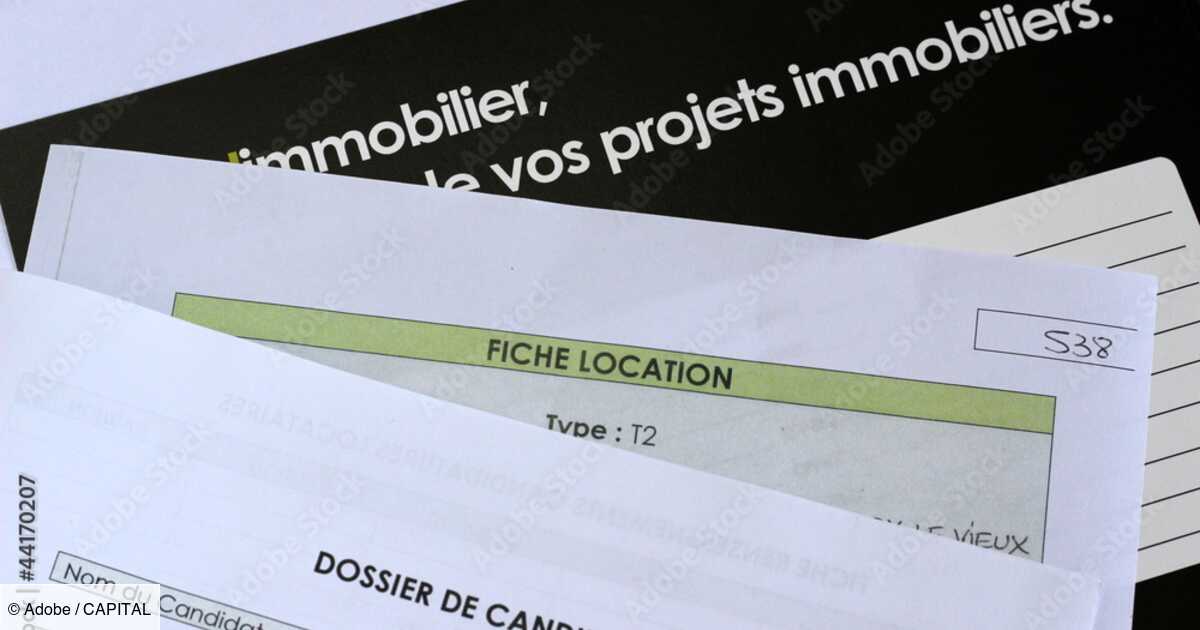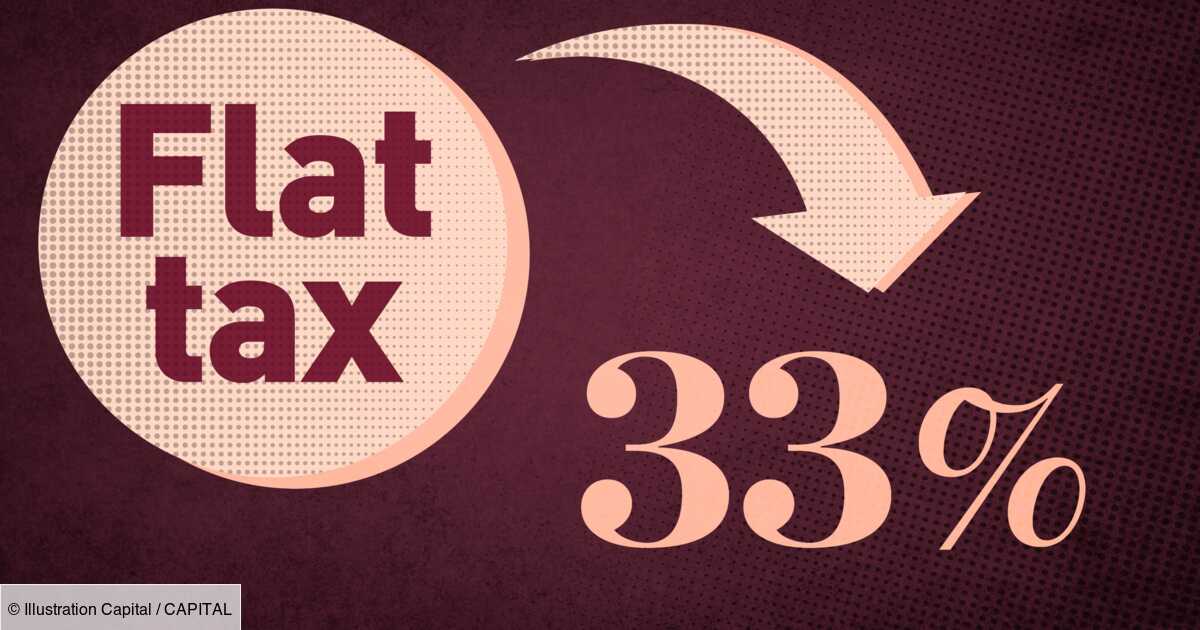On Tuesday, November 26, senators adopted the increase in the single flat-rate levy (PFU) on investment income by three points. The flat tax rate would thus increase from 30 to 33% in 2025.
© Illustration Capital
– The flat rate has been set at 30% since its creation in 2018.
-
To safeguard
Saved
Receive alerts Flat tax
Put in failure in the hemicycle at the National Assembly during the examination of the 2025 budget, supporters of an increase in the flat tax this time won their case in the Senate. The elected representatives of the upper house adopted, during the examination of the text in public session Tuesday, November 26, an amendment from Hérault senator Christian Bilhac (European Democratic and Social Rally) providing for an increase in the single flat-rate levy from 30 to 33% from 2025. A rate of 30% in force since January 1, 2018 and the creation of the PFU (or flat tax) – made up of 17.2% social security contributions and 12.8% flat-rate tax – and applied to numerous investment income: dividends and capital gains on shares, interest on savings accounts, income from investment contracts life insurance, housing savings plans (PEL) and housing savings accounts (CEL).
This exceptional taxation, at a rate of 12.8% and much lower than that resulting from the application of the brackets of the income tax scale (from 0% to 45%), had already been called into question at the National Assembly as part of the examination of the Social Security budget in the Finance Committee. The deputies thus adopted, on October 16, a increase in tax rate from 12.8% to 15.8%. But the measure was not voted on in public session. What the senators therefore did, by a very narrow majority, 174 votes to 167.
A purely symbolic vote
While this increase in taxation on investment income is obviously bad news for savers, its implementation is anything but certain. The amendment adopted by the Senate in fact received an unfavorable opinion from the general rapporteur of the Finance Committee in the Senate, Jean-François Husson (LR) but also from the Minister of Budget and Public Accounts, Laurent Saint-Martin, criticizing a measure touching “a comprehensive tax package which has made it possible, I am convinced, to bring more investment into the country”.
The tenant of Bercy also stressed that the differential contribution on high incomes (CDHR) – which aims to establish a minimum tax rate of 20% for the richest households – “will have the impact of an increase in the PFU rate, depending on the nature of their income”. However, it is the government which should have the final word, the recourse to article 49-3 of the Constitution being imminent. The executive will then have complete freedom to retain the amendments of its choice.
Budget 2025: will “pensions really no longer be paid” in the event of a motion of censure?
Receive our latest news
Every week, the key articles to accompany your personal finance.








